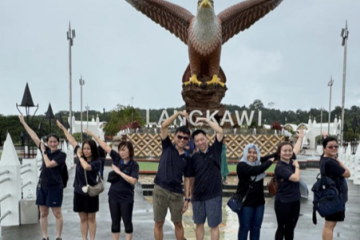Benefits of Team Building Activities
Team building activities offer numerous advantages that extend beyond mere fun and games. They play a crucial role in enhancing communication, building trust, and fostering collaboration among team members. By participating in structured activities, employees can develop stronger interpersonal relationships, leading to a more cohesive work environment.
Moreover, these activities can significantly boost morale and motivation. Engaging in team-building exercises allows employees to step away from their daily routines, encouraging creativity and innovation. For instance, activities like escape rooms or outdoor challenges can inspire teams to think outside the box, ultimately translating to improved performance in their work tasks.
Choosing the Right Team Building Program
Selecting the appropriate team-building program is essential for maximizing its effectiveness. Organizations should consider factors such as team size, goals, and the nature of the work environment when choosing activities. Tailoring the program to address specific team dynamics and objectives ensures that the experience is relevant and beneficial.
For example, a tech company might benefit from problem-solving activities that enhance critical thinking, while a sales team could thrive in competitive outdoor challenges that build camaraderie. By aligning the chosen activities with the team's needs, organizations can foster a more impactful and engaging team-building experience.
Measuring the Success of Team Building Initiatives
Evaluating the effectiveness of team-building initiatives is vital for understanding their impact on team dynamics and overall organizational culture. Organizations can measure success through surveys, feedback sessions, and performance metrics before and after the activities. This data helps in assessing whether the objectives of the team-building program were met.
Additionally, observing changes in team interactions and productivity can provide qualitative insights into the program's effectiveness. For instance, improved communication and collaboration among team members can indicate that the team-building activities successfully addressed existing issues. Regularly measuring success allows organizations to refine their approach and continuously improve future initiatives.
Future Trends in Team Building Activities
The landscape of team building is continuously evolving, with new trends emerging to meet the changing needs of organizations. Virtual and hybrid team-building activities have gained popularity, especially in light of remote work arrangements. These innovative formats allow teams to engage and connect regardless of their physical locations.
Moreover, there is a growing emphasis on wellness-oriented team-building activities that focus on mental health and well-being. Programs that incorporate mindfulness, stress relief, and physical fitness are becoming more common, reflecting a holistic approach to team dynamics. By staying ahead of these trends, organizations can ensure their team-building strategies remain relevant and effective in fostering a positive workplace culture.












